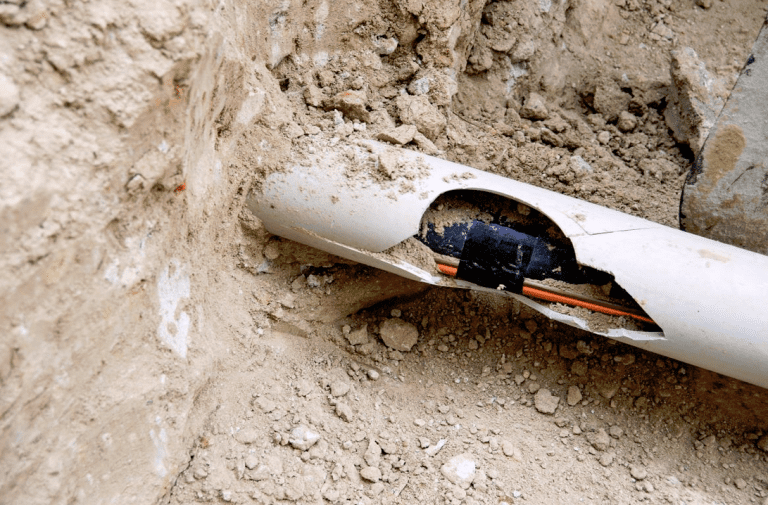As you’re planning a renovation project, it’s essential to consider the impact of your decisions on the home’s structure. One such decision is whether or not to remove concrete floors and walls during your renovation work. Many houses in the US prefer concrete, as air infiltration reduces by 75 percent, apart from other associated benefits. If you remove concrete, many benefits come with this decision, including increased energy efficiency, enhanced aesthetics, avoidance of hazardous materials, and more. What Is Concrete Demolition? Concrete demolition is the process of removing concrete from a structure. Concrete is removed using jackhammers and other tools, which break up the large chunks of concrete into smaller pieces that can be easily carried away. This process allows you to make way for renovations or new construction by removing unwanted materials like old foundations and walls and making room for new additions like windows or doors. According to IBISWorld, the demolition industry revenue is set to grow by CAGR of 1.4% to reach $8.7 billion by the end of 2023. Concrete demolition also helps with safety during construction projects because it reduces the risk of injury due to falling debris when working with heavy machinery on your property. But after the demolition, you will also have to deal with concrete removal. Concrete demolition and removal can be dangerous, as it requires heavy equipment and being in dust for an extended time. Professionals will have the right resources to get the job done in a safe environment. While selecting a concrete removal service provider, consider the company’s experience as it matters the most. Concrete removal is a competitive field; if a company has survived for a long time, it is doing something right. Five Points Excavating has been in the business for over 25 years now. Five Points Excavating has completed around 1,800 projects with a 100% satisfaction rate. It follows a simple 1-2-3 process where it creates a quote, establishes a plan, and executes it in three steps. This has helped the company keep the approach simpler and has proven to be a key part of its success. Benefits of Concrete Demolition for Renovation While there can be numerous benefits based on what you are trying to achieve through concrete removal, here are some common benefits: Removal of Hazardous Materials When renovating, keeping your home safe for you and your family is essential. Concrete demolition can be used for many applications, including removing hazardous materials from the property. Concrete demolition is ideal for removing asbestos. If a building was built before 1980 and still has asbestos-containing materials (ACM), then those ACMs must be removed by professionals trained to handle this type of material safely. Asbestos is a carcinogen that can cause lung cancer if inhaled over long periods or if there is significant exposure through dust or fibers released into the air during removal work done by untrained contractors with poor safety procedures in place. According to Mesothelioma Hope data, at least 30 Americans die daily due to asbestos-related diseases. Concrete demolition also allows homeowners to safely remove lead paint from old buildings without exposing themselves or family members who live in those buildings today, especially children who might play around inside homes where lead paint may still exist on walls or other surfaces throughout them. But if you don’t take proper care during demolition, the lead can enter the air and inside your body. According to a study published in the PNAS journal, over 170 million Americans alive today were exposed to high lead levels in childhood. Loss of IQ is one of the after-effects of the same. Allows Structural Improvements Removing concrete is a great way to add insulation or improve the structural integrity of your home. This can be done by: Increased Energy Efficiency Concrete is a good insulator, which can help keep your home warm in winter and cool during the summer. However, suppose you plan to renovate your house or apartment and remove some existing concrete. In that case, it’s important to know that this will increase energy efficiency. This is because concrete demolition allows for better insulation of the new building materials used during renovation work, and homeowners can save money by improving their home’s energy efficiency. This can also prove beneficial to the environment. According to a recent study published on the NCBI website, changes to concrete production can lead to a 50% reduction in greenhouse gas emissions. Enhanced Aesthetics Concrete is a versatile material that can be used in many different ways. It’s not just for floors. It can also be used to create walls, countertops, and furniture. In addition to being aesthetically pleasing on its own, concrete has the added benefit of being able to take stain or paint beautifully. If you’re looking for ways to improve the look of your home but don’t want to spend money on replacing all of your old materials with new ones, consider covering up some of them with new coats of paint or staining them instead. Painting over the brick is one way this could be done. Another option would be staining wood floors so they match other parts of the room better than plain wood does on its own. Concrete Demolition Cost The cost of concrete demolition depends on the size of your project. For example, suppose you have a small renovation job, like removing concrete slabs in your backyard and replacing them with pavers or grass. In that case, the cost will be minimal compared to removing and replacing an entire driveway or sidewalk. Concrete demolition costs are also one-time expenses. Once they’re complete, they can’t be repeated unless another project requires it. This makes it a fraction of what it would cost to remove old concrete surfaces and install new ones, which can take months instead of weeks. Conclusion Concrete demolition is a great way to increase your home’s energy efficiency and value. Considering all the options before starting any renovation project is important to know what will














